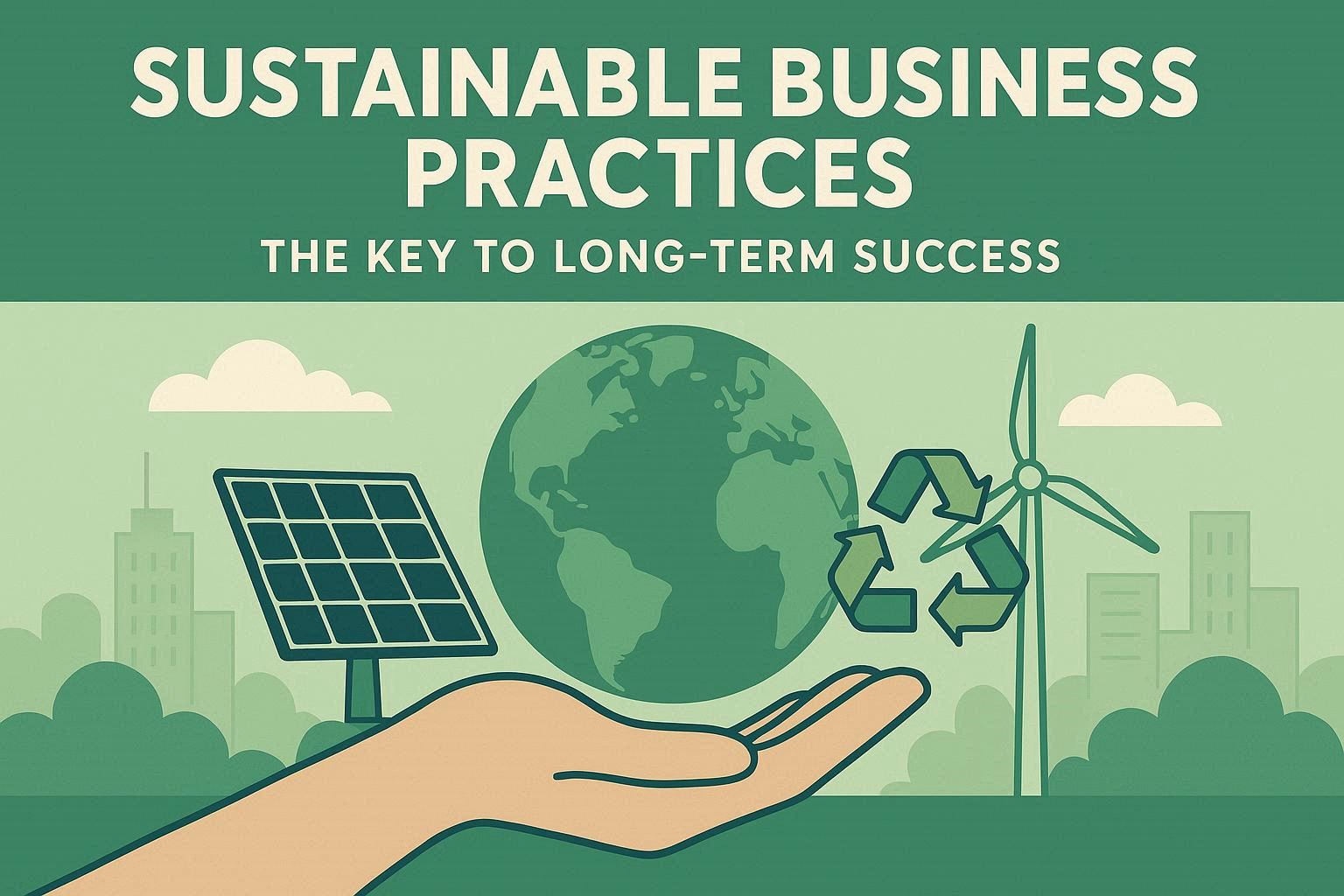In today’s rapidly changing world, businesses are facing increasing pressure from consumers, investors, and governments to operate responsibly. Sustainability has moved beyond being a trend—it has become a necessity for long-term success. Companies that embrace eco-friendly operations, ethical supply chains, and social responsibility not only enhance their reputation but also gain financial and competitive advantages.
This article explores why sustainability matters in business, how companies can integrate it into their strategies, the challenges they face, and the opportunities it creates.
1. Why Sustainability Matters in Business
1.1 Meeting Consumer Expectations
Modern consumers are more conscious of the impact their purchases have on the environment and society. They prefer brands that prioritize eco-friendly packaging, responsible sourcing, and transparent practices. Businesses that align with these values build stronger customer loyalty and trust.
1.2 Attracting Investors
Environmental, Social, and Governance (ESG) factors are now key considerations for investors. Funds and institutions increasingly direct capital toward companies with strong sustainability performance. Businesses that neglect ESG risks may struggle to attract long-term investment.
1.3 Regulatory Compliance
Governments around the world are tightening environmental regulations. From carbon emissions to waste management, businesses are expected to comply with strict standards. Proactive adoption of sustainable practices helps companies avoid penalties and stay ahead of legal changes.
2. Key Elements of Sustainable Business Practices
2.1 Eco-Friendly Operations
Companies can reduce their environmental footprint by adopting renewable energy, minimizing waste, and improving energy efficiency. For example, installing solar panels, recycling materials, and optimizing logistics can significantly lower carbon emissions.
2.2 Ethical Supply Chains
Sustainability is not just about the environment—it also involves treating workers fairly and sourcing materials responsibly. Companies are now expected to ensure their suppliers respect labor rights and environmental standards.
2.3 Product Innovation
Businesses that design sustainable products gain a competitive edge. From biodegradable packaging to energy-efficient appliances, innovation plays a critical role in meeting consumer demand while protecting the planet.
2.4 Corporate Social Responsibility (CSR)
CSR initiatives allow businesses to give back to communities. These may include supporting local education, healthcare projects, or environmental conservation programs. Such efforts strengthen brand reputation and employee engagement.
3. Challenges in Adopting Sustainable Practices
3.1 Higher Initial Costs
Switching to renewable energy, sustainable materials, or green technologies often requires significant upfront investment. While these changes pay off in the long run, many small businesses hesitate to make the transition.
3.2 Supply Chain Complexity
Ensuring every part of the supply chain adheres to sustainable standards can be difficult. Companies often deal with multiple suppliers across different regions, making oversight and accountability challenging.
3.3 Consumer Price Sensitivity
Although consumers demand eco-friendly products, some are unwilling to pay higher prices. Businesses must balance affordability with sustainability to remain competitive.
4. Strategies for Building a Sustainable Business
4.1 Start with Clear Goals
Businesses should define measurable sustainability goals, such as reducing carbon emissions by 30% within five years or switching to 100% recyclable packaging. Clear objectives guide progress and accountability.
4.2 Leverage Technology
AI, blockchain, and IoT technologies help businesses monitor supply chains, reduce waste, and track sustainability performance. For example, blockchain can verify ethical sourcing, while AI can optimize energy consumption.
4.3 Engage Employees and Customers
A sustainable culture starts with people. Companies should train employees to adopt eco-friendly practices and engage customers with transparency about their sustainability efforts. Loyalty programs that reward sustainable choices can also drive customer participation.
4.4 Collaborate with Partners
Partnerships with NGOs, industry groups, and governments can accelerate sustainability initiatives. Collaboration helps businesses share resources, access expertise, and scale their impact.
5. Opportunities Created by Sustainable Business
5.1 Cost Savings in the Long Run
Energy efficiency, waste reduction, and optimized logistics often reduce operating costs over time. Businesses that invest in sustainability today will see financial benefits in the future.
5.2 Competitive Differentiation
Sustainability can be a unique selling point. Brands that position themselves as eco-conscious attract environmentally aware consumers and stand out in crowded markets.
5.3 Talent Attraction and Retention
Employees increasingly want to work for companies that share their values. A strong commitment to sustainability enhances employee satisfaction and retention, while also attracting top talent.
5.4 Global Market Expansion
Sustainable products and services are in high demand worldwide. Businesses that prioritize green innovation can expand into international markets where regulations and consumer expectations favor eco-friendly solutions.
6. The Future of Sustainable Business
6.1 Circular Economy Models
More companies are expected to adopt circular economy principles, where products are designed for reuse, recycling, and minimal waste. This shift will reduce reliance on raw materials and create new business opportunities.
6.2 Green Finance
The rise of green bonds, sustainable loans, and ESG investment funds will accelerate the flow of capital into environmentally responsible companies. Businesses that embrace sustainability will find it easier to secure financing.
6.3 Digital Transformation for Sustainability
Digital tools will play a larger role in monitoring and optimizing sustainability practices. From smart sensors that track energy use to AI systems that reduce waste, technology will drive the next phase of sustainable growth.
Conclusion
Sustainability is no longer optional—it is essential for long-term business success. Companies that embrace eco-friendly operations, ethical supply chains, and community responsibility will thrive in the evolving marketplace.
Although challenges exist, the opportunities far outweigh the risks. Businesses that integrate sustainability into their strategies today will build resilience, attract loyal customers, and secure a prosperous future.
The future of business is green, and those who act early will lead the way in creating a sustainable global economy.

